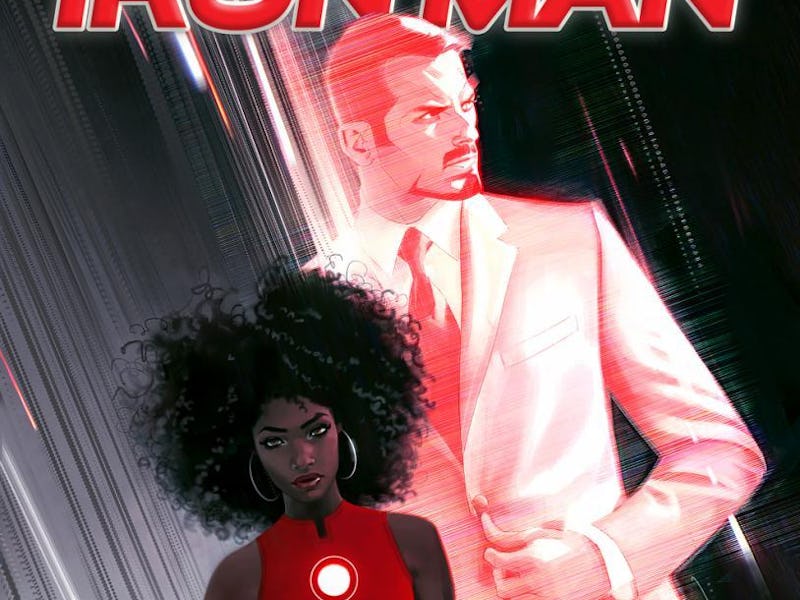Marvel's Female, Black, Iron Man Got this Predictable Reaction
Marvel's newest hero has racists upset, but the all-white creative team behind her is troubling normal fans.

Marvel creator Brian Michael Bendis announced in Time Wednesday that his Invincible Iron Man comic would follow Riri Williams, a 15 year-old M.I.T. student who reverse-engineered Tony Stark’s suit in her dorm room in previous issues. He insisted that the emergence of a new, black, female Iron Man didn’t necessarily confirm any particular ending to Civil War II.
On the subject of Tony’s new role, Bendis said:
“Tony is also a master at not paying attention to the thing that’s most important, and distracting himself with Avengers stuff. How that all shakes out such that Tony is no longer in the armor? You’ll have to wait to find out for the end of Civil War II. But it does create a path for Riri Williams, who Tony will know and will be interacting with very shortly in the comics.”
He also added, “he can’t help but go, maybe I should buy her out,” suggesting that Riri wasn’t going to simply take up the Iron Man helm after Tony Stark were to, say, die in the final Civil War II issue.
Time mentioned the “controversy” surrounding Marvel’s new initiative, casting younger, non-white and/or female characters as primary heroes in comics. Yet Bendis deflected the question of scandal, saying “Once Miles hit, and Kamala Khan hit and female Thor hit — there was a part of an audience crawling through the desert looking for an oasis when it came to representation, and now that it’s here, you’ll go online and be greeted with this wave of love.”
Bendis himself wrote Miles (the young black Spider-Man who works with Ms. Marvel in Champions), but Kamala Khan (Ms. Marvel) was created by a team which included two Muslim women, Marvel editor Sana Amanat and writer G. Willow Wilson. Thor, on the other hand, which gave Mjölnir to Jane Foster, was created by Jason Aaron.
The controversy Bendis described can be unpacked as several parts. First, there are the racists protesting the change.
Secondly, there are quite a few comic book readers and creators voicing concerns about Bendis helming the story of a teenaged black girl.
Fans have already pointed out that Bendis, despite asserting that his tenure writing Miles Morales has prepared him to write Riri Williams’s story, wrote controversial plot-points into Spider-Man, including Miles’s insistence that his race shouldn’t define him.
Bendis’s mouthpiece on race relations, the fictional Miles Morales, became very popular with Gamergaters on Reddit, who decided the above panel confirmed their beliefs that race has no bearing on conversations about heroics and society.
When asked how he was inspired to write Riri, Bendis said, “We never had a meeting saying, “we need to create this character.” It’s inspired by the world around me and not seeing that represented enough in popular culture.” Perhaps involuntarily, Bendis nailed the primary source of the comic’s controversy by claiming Riri is inspired by people in his world. Earlier in the interview, he said, “I was working in Chicago a couple of years ago on a TV show […] and this story of this brilliant, young woman whose life was marred by tragedy that could have easily ended her life — just random street violence and went off to college was very inspiring to me.” In short, Bendis was inspired to write Riri because of a story he saw on television one time. The project, then, is probably well-intentioned, but not exactly inspired by Bendis’s own world.
The comic book community continues to be divided by Marvel’s diversification strategies, which recently included announcing Champions and publishing Ta-Nehisi Coates’s take on Black Panther, and began with gender-flipping Thor, which out-sold male Thor comics by a significant margin. While some resent the addition of non-white, non-male characters into the comic book world, others worry about Marvel’s creative team not appearing as diverse as their new collection of characters.